President Macron: Does he have what it takes to reform France?
- Published
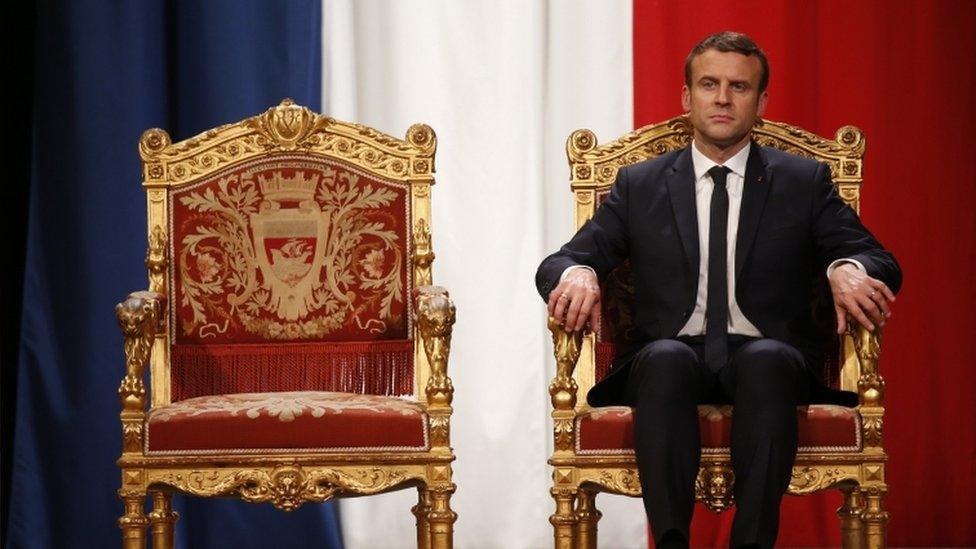
Emmanuel Macron's achievements in this presidential election should not be underestimated. He has become France's youngest president ever, and the world's youngest democratic head of state.
This is an astounding accomplishment for someone who was unknown five years ago and has never held elected office before.
Despite the rise in social conservatism and extremism in France, he successfully ran on an open-border, pro-trade platform to defeat far-right Eurosceptic Marine Le Pen.
It's one thing to get elected, but another to reform a country that has resisted any major economic change over the past 40 years. When Great Britain was showing the way to economic reform in the 1980s and the 1990s with Thatcherism and Blairism, France was looking backwards.
Little has changed since then. Can it change now with a brand-new president? Will Mr Macron be the one to transform France, especially its stagnating economy?
Yes President
In a recent book and in speeches, he has called for a "revolution". One of his key proposals is a simplification of the Labour Code, a 3,600-page doorstop of a book that regulates every aspect of employment relations.
"Divisions have to be overcome" - newly elected President Emmanuel Macron
Mr Macron also wants to cut the corporate tax from 33% to 25%, as well as encourage entrepreneurship and risk-taking. This sets him on a collision course with French labour unions, most of which have grown increasingly radical as their membership has dwindled in recent decades
Ambitious and bold, he may be able to stand up to strikers and protesters with more determination than previous presidents. And having clearly defeated the Left, which is expected to retain only about 10% of the seats in the lower chamber of Parliament, he can also expect little political opposition to his liberal-leaning reforms.
In addition, his candidacy has been backed by many top civil servants - a group Mr Macron joined after graduating from the elite Ecole Nationale d'Administration.
In the classic BBC series Yes Minister, he would be an interesting mix of Jim Hacker, the idealist minister, and Sir Humphrey Appleby, the mandarin whose aim is to ensure that nothing changes.
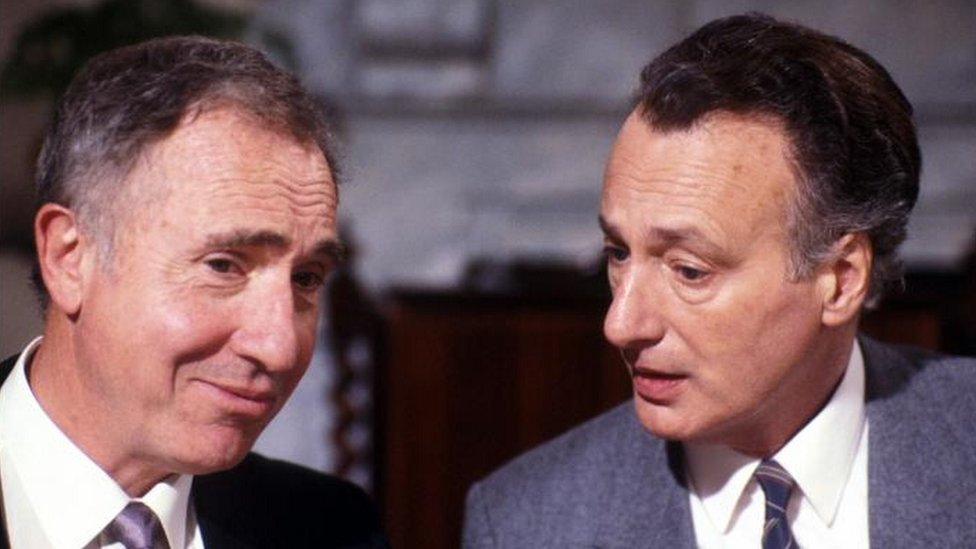
Sir Humphrey and Jim Hacker struggled for power in the hit series Yes Minister
If Mr Macron manages to push his reforms while using his civil service background to fight the conservatism of the administration, he could indeed reform France in depth.
Revolution or grand illusion?
Success is however far from certain, especially since Mr Macron's reformism seems to be weak on a number of key issues.
The main open question regards public spending. France has the highest level of government expenditure in the OECD group of industrial countries. It is the only European OECD member that increased public spending between 2010 and 2014 (before inflation).
Mr Macron is not as bold on this issue as he is on others. His aim is only to curb the increase in public spending. But if he doesn't significantly bring down spending itself, he will have no leeway to push through some of his other reforms. He will find it difficult to be a French Tony Blair without the radical legacy of a Margaret Thatcher as a foundation.
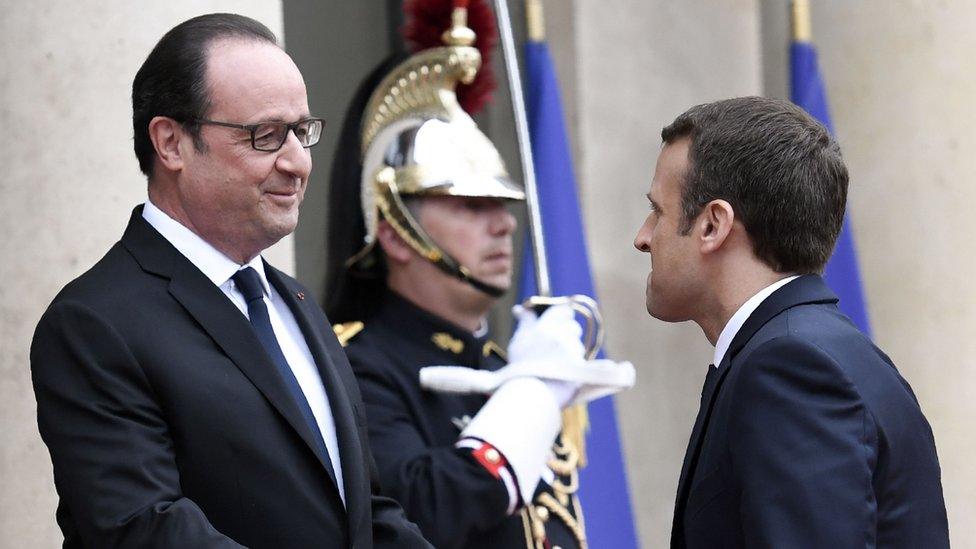
Mr Macron started his career as a protégé of his predecessor Francois Hollande
Mr Macron's political record also points to ambivalence towards meaningful reform. As a senior aide to François Hollande from 2012 to 2014, he led a team of economic advisers that implemented the largest tax hikes of the previous presidency. It's hard to call that economic liberalism.
Between 2014 and 2016, when he was economy minister, he implemented a reform (known as the "Macron law") whose key feature was allowing the bus lines to compete with rail. This is not much of a track record, given the ambition of his current presidential agenda and what is at stake today.
Crunch time
The real nature of Mr Macron's reformism will probably become clearer in the coming weeks. First, his new party, La Republique en Marche, will unveil its candidates in parliamentary elections in June. Those revealed so far lean strongly to the left, with many coming from the reformist faction of the Socialist Party.
Another unknown is the coalition he will eventually form, as his party is unlikely to win a majority. Should he fail to govern with other reformers, he could be unable to achieve any change at all.
Many of Mr Macron's proposals could help France overcome years of stagnation and self-doubt. But he needs to turn brave talk into urgent action.
Backed by a solid mandate and with the opposition in disarray, he has a unique opportunity to carry out substantial reform. Whether he seizes it remains to be seen.
Alexis Vintray is editor of the online political journal Contrepoints.org
- Published8 May 2017
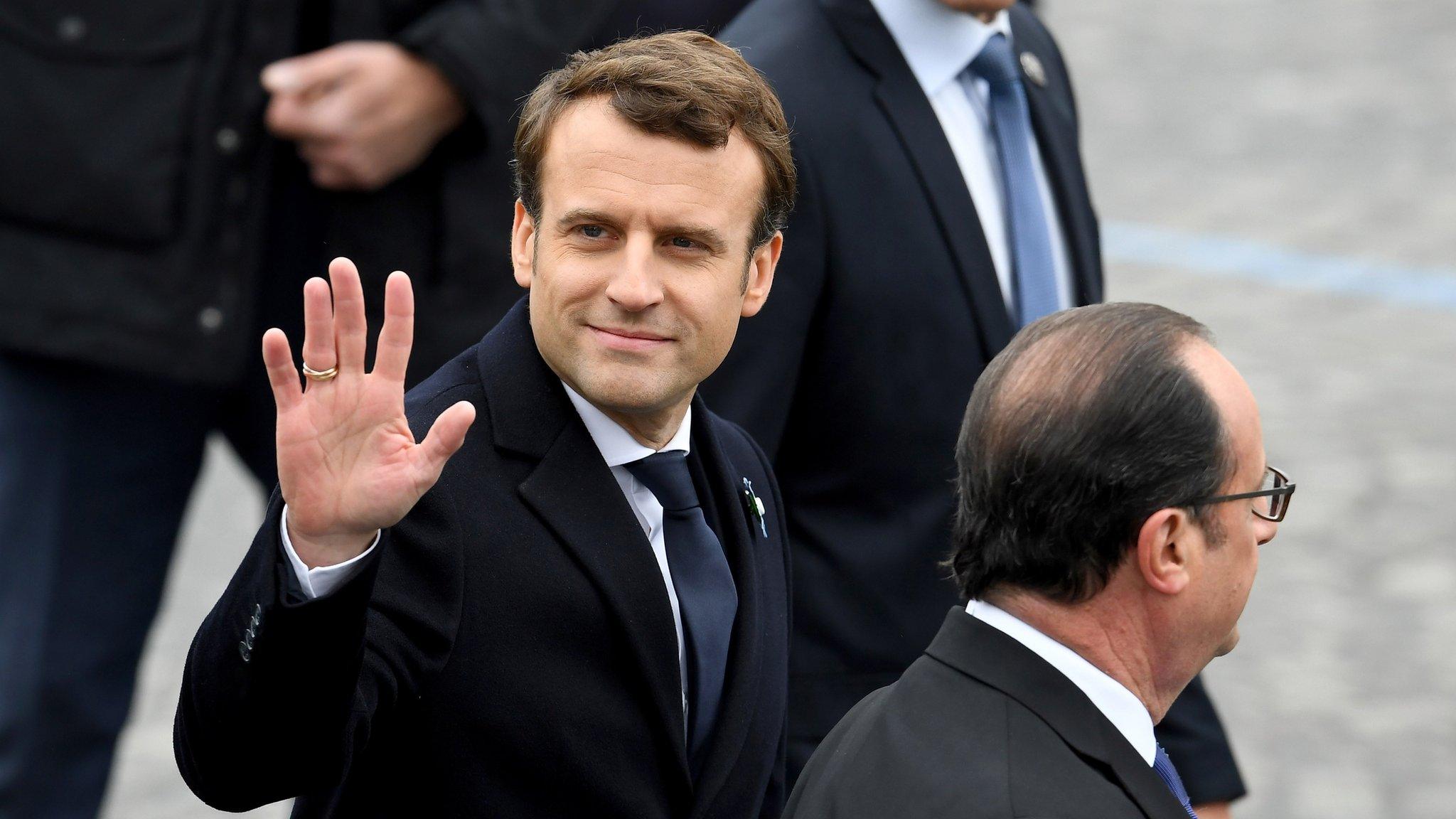
- Published24 April 2017
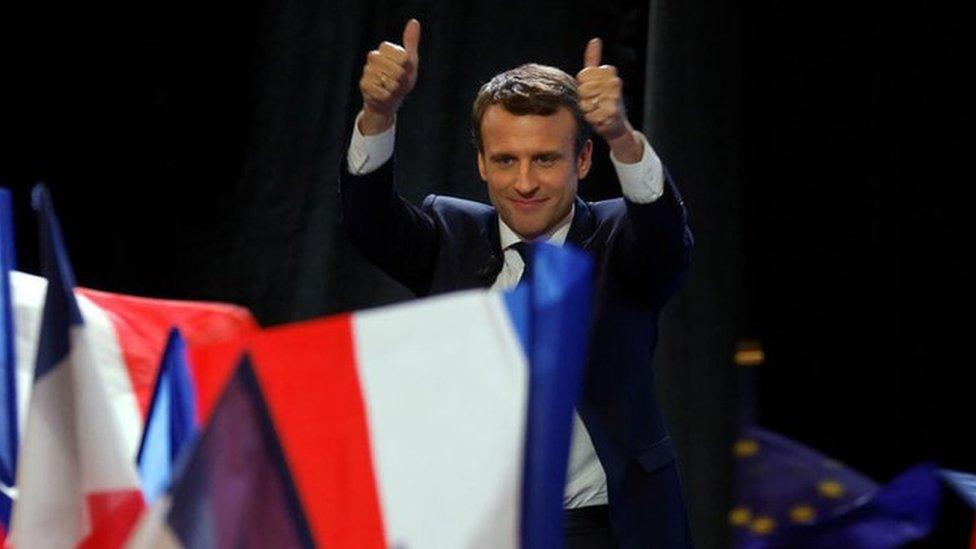
- Published24 April 2017
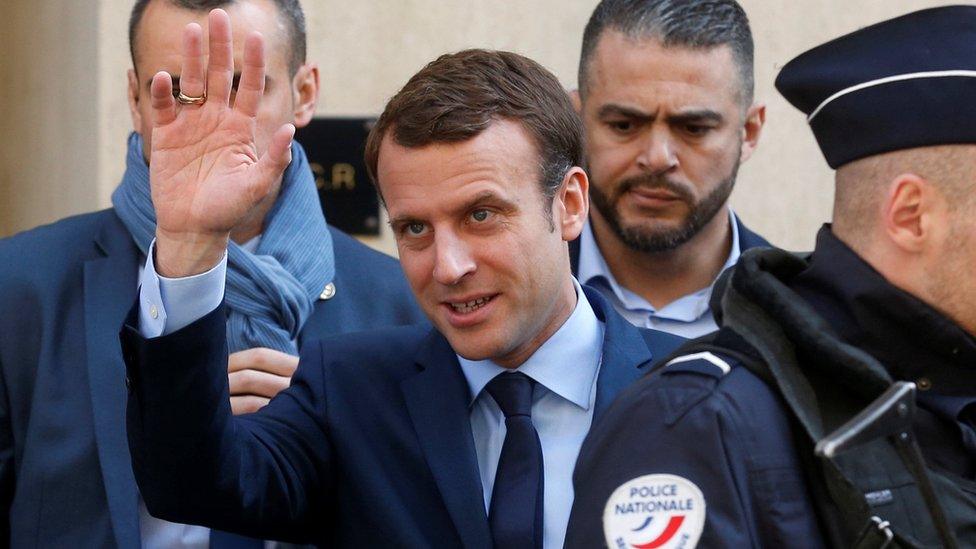
- Published24 April 2017